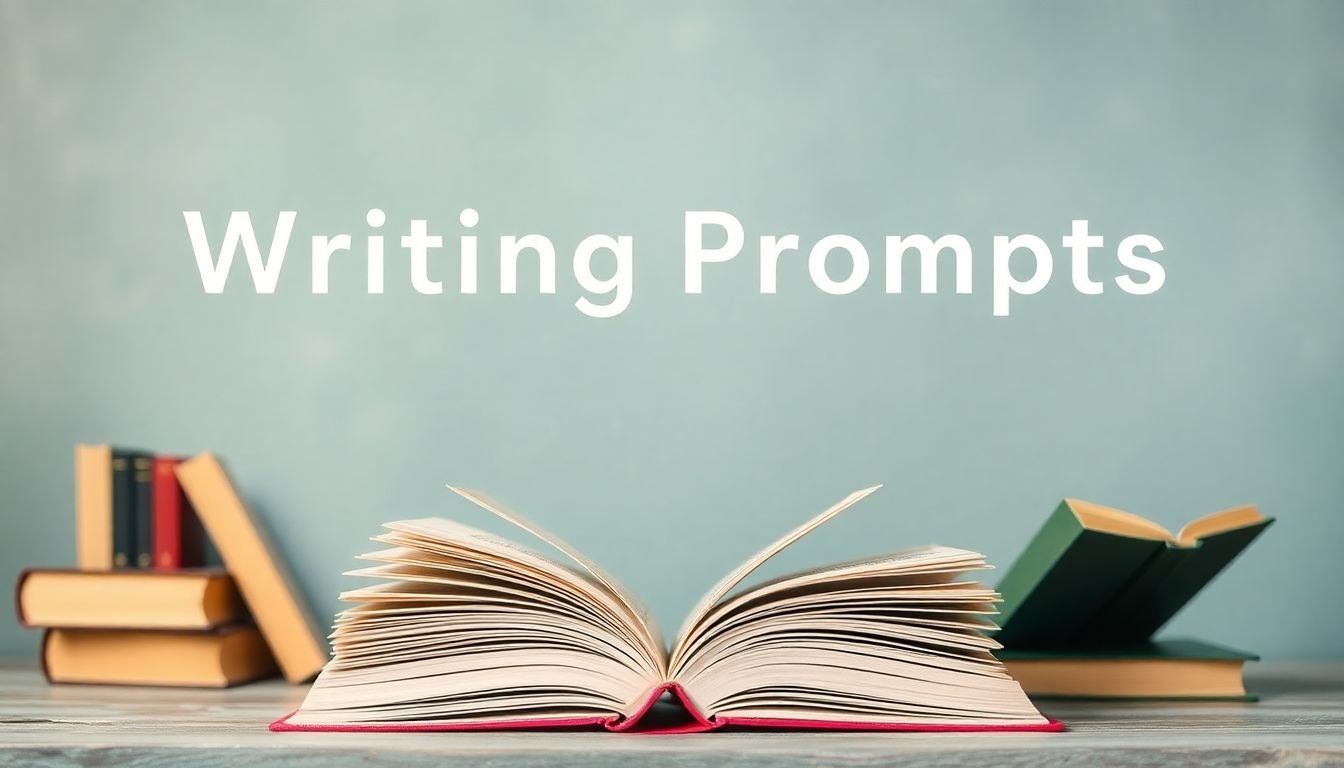Why Writing Prompts Matter for Creative Writers
Whether you’re a seasoned author or just beginning your writing journey, facing a blank page can be daunting. Writing prompts offer a creative springboard, helping writers overcome blocks and explore new perspectives. Drawing inspiration from literature adds depth and richness to these prompts, connecting your own voice with the legacy of storytelling across time.
For literature enthusiasts and aspiring authors alike, prompts inspired by books and literary styles can unlock new ideas, refine writing skills, and even lead to full-length projects. Let’s explore how to tap into the literary world to spark your creativity.
Types of Writing Prompts Inspired by Literature
Writing prompts can take many forms, and when rooted in literary themes or styles, they offer a unique opportunity to engage with storytelling in a meaningful way. Here are several categories to explore:
1. Character-Driven Prompts
- Inspired by Classic Archetypes: Write from the perspective of a Byronic hero who finds redemption in an unexpected place.
- Modern Interpretations: Reimagine a famous literary villain as the misunderstood protagonist of your story.
- Character Mashups: Create a dialogue between two characters from different novels—what would Elizabeth Bennet say to Jay Gatsby?
2. Setting-Based Prompts
- Historical Fiction: Craft a story set in 19th-century Paris, inspired by the ambiance of Victor Hugo’s world.
- Fantasy Realms: Invent a magical city with its own political intrigues and customs, drawing from Tolkien’s world-building techniques.
- Isolation Settings: Write about a character who lives alone in a lighthouse, mirroring the solitude found in modernist literature.
3. Theme-Centric Prompts
- Love and Loss: Explore a forbidden romance that spans generations, echoing the emotional intensity of Brontë’s novels.
- Identity and Transformation: Write about a character who wakes up in someone else’s life, inspired by Kafka’s surrealism.
- Social Commentary: Create a dystopian society where books are currency, reminiscent of Orwell’s cautionary tales.
4. Style Emulation Prompts
- Stream of Consciousness: Write a short story entirely from the internal thoughts of a character, in the style of Virginia Woolf.
- Minimalist Prose: Tell a powerful story using sparse, Hemingway-like language.
- Epistolary Format: Craft a narrative through letters, journal entries, or emails—perfect for fans of “Dracula” or “The Color Purple.”
How to Use Literary Writing Prompts Effectively
Writing prompts are most powerful when used as tools for exploration rather than rigid assignments. Here are some practical tips to make the most of them:
1. Set a Timer
Give yourself 15–30 minutes to write freely without editing. This encourages spontaneity and keeps perfectionism at bay.
2. Combine Prompts
Mix a setting prompt with a character prompt to create unexpected storylines and layered narratives.
3. Rewrite from a New Angle
Take a prompt you’ve already used and write it from a different point of view. This builds complexity and strengthens your narrative flexibility.
4. Keep a Prompt Journal
Maintain a dedicated notebook or digital file for prompt responses. Over time, you’ll build a treasure trove of ideas that may evolve into larger projects.
Literary Sources for Prompt Inspiration
Books themselves are fertile ground for writing prompts. Here are some rich sources of inspiration:
1. Classic Literature
- Jane Austen: Use her themes of social class and personal growth to inspire romantic or satirical fiction.
- Fyodor Dostoevsky: Dive into psychological depth and moral conflict for darker, introspective stories.
- Mary Shelley: Explore the ethical boundaries of science and creation.
2. Contemporary Fiction
- Chimamanda Ngozi Adichie: Prompt ideas around identity, diaspora, and cultural intersections.
- Neil Gaiman: Use magical realism and mythological elements to create otherworldly tales.
- Celeste Ng: Focus on family dynamics and secrets within suburban settings.
3. Poetry and Short Stories
Short-form literature is ideal for generating prompts. A single stanza or paragraph can inspire entire narratives.
- Emily Dickinson: Reflect on inner worlds and solitude.
- Raymond Carver: Write minimalist stories with emotional depth.
Writing Prompts for Specific Genres
Different genres call for different kinds of inspiration. Here are genre-specific prompt ideas to ignite your imagination:
1. Fantasy
- A kingdom where magic is outlawed, but a child is born with forbidden powers.
- A prophecy misinterpreted for centuries leads to a catastrophic uprising.
2. Science Fiction
- A scientist discovers a way to upload human consciousness—but only for the elite.
- Earth’s last library is protected by artificial intelligence with a mind of its own.
3. Mystery/Thriller
- A rare book goes missing from a prestigious collection, and the only clue is a cryptic note in the margin.
- A detective must solve a murder that mirrors the plot of a famous novel.
4. Romance
- Two writers fall in love through anonymous letters exchanged in a community writing group.
- A bookshop owner finds a love letter tucked inside a donated novel and sets out to find its author.
Resources for Writers Seeking Inspiration
Writers looking to deepen their craft and find ongoing inspiration can benefit from the following resources:
1. Writing Communities
- NaNoWriMo: Offers daily prompts and a supportive network of writers.
- Reddit’s r/WritingPrompts: A treasure trove of user-generated ideas.
2. Literary Magazines
- The New Yorker: Read short fiction that often sparks new ideas.
- Granta: Features innovative storytelling and emerging voices.
3. Books on Writing
- “Bird by Bird” by Anne Lamott: Offers both practical advice and emotional support for writers.
- “On Writing” by Stephen King: Blends memoir with actionable writing tips.
Final Thoughts on Creative Exploration
Writing prompts are more than exercises—they’re doorways into new worlds. By drawing on literary inspiration, writers can deepen their understanding of narrative, experiment with voice and style, and ultimately discover their own unique storytelling path. Whether you’re writing for fun, publication, or personal growth, let books guide your imagination and fuel your creativity.

